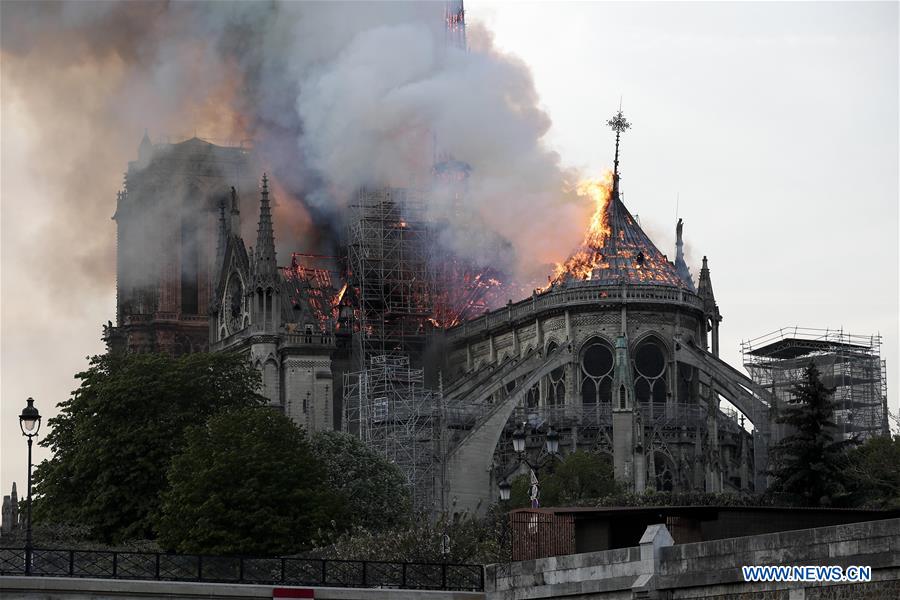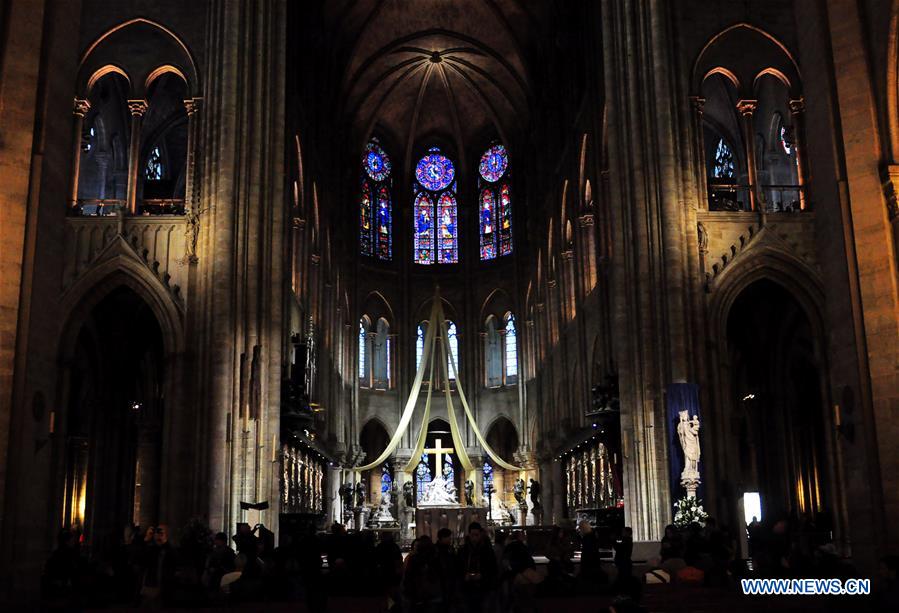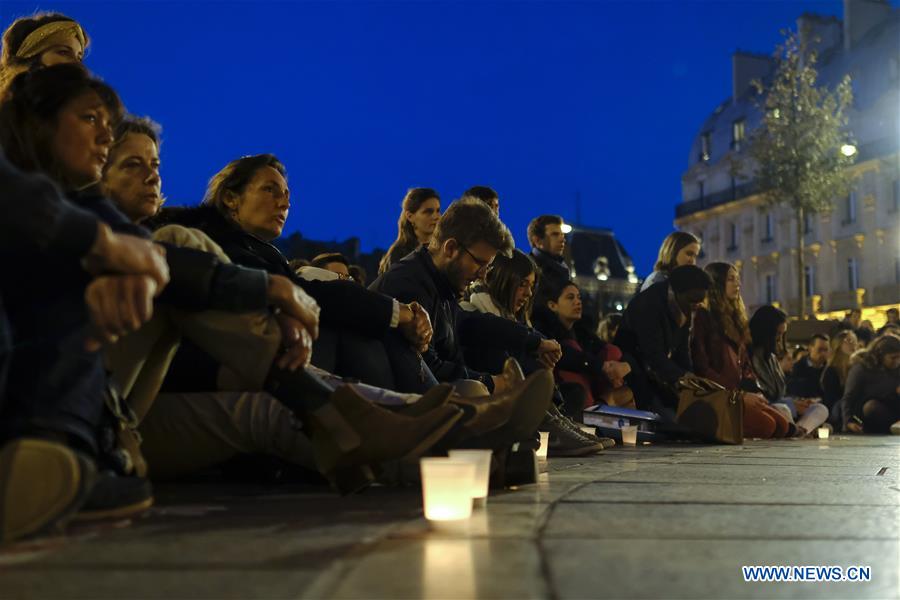Notre Dame calamity a loss to world heritage
- By Sajjad Malik
 0 Comment(s)
0 Comment(s) Print
Print E-mail China.org.cn, April 19, 2019
E-mail China.org.cn, April 19, 2019

The blaze that ravaged the fabled Notre Dame in Paris has shaken hundreds of millions of people around the globe. Watching as the spire of the iconic cathedral tilted and snapped off, collapsing into the inferno was especially heart-rending.
The sense of loss at the destruction of this 850-year old Gothic structure has transcended apparent religious, ethnic, social and cultural fault lines. It highlights the collective grief over the loss of a grand cultural and religious symbol.
Notre Dame, meaning "Our Lady," is dedicated to the Virgin Mary. But for tens of thousands of tourists and visitors, it is the most powerful architectural image in the Parisian skyline, listed by UNESCO as a World Heritage site.
Restoration work was taking place when the fire broke out. So far, it has been treated as an accident, though the possibility of arson or extreme human negligence should not be discarded outright at this stage. The probe should consider all sides.
In response to the incident, French President Emmanuel Macron publicly announced that the cathedral should be rebuilt in five years, to be completed by the 2024 Summer Olympics. He promised to build it more beautifully, which can be accomplished thanks to advancements in technology.

Pledges of money have been made by wealthy individuals and groups. The issue, however, is not of money but how to recreate a copy of the great structure that will be strong enough to withstand fire and tremors.
Our collective inability to control fires in buildings still leads to tragic accidents causing human and material losses. A megafire engulfed the Grenfell Tower in London in 2017, consuming dozens of victims over many hours as firefighters fought in vain to douse it with all of the tools available to them.
The Notre Dame fire was brought under control after about 15 hours. It is said that another 30-minutes could have resulted in even greater destruction, showing the critical importance of time.
The construction industry is highly imaginative and enterprising. Apart from the amazing structures on Earth, some countries are now reporting plans to extend building activity into space, but before doing this, it is essential to devise more efficient and effective ways to tackle big fires. The fact is, there is huge room for improvement.
This fact must be already on the mind of builders, engineers and municipal authorities, who should give immediate attention to developing more fire-resistant building materials and stronger firefighting technologies. It is hard to believe that, in our high-tech age of unprecedented progress, we have not found better ways to tackle fires.
The Notre Dame blaze has brought the world together. But reports are now coming that extremists and xenophobes say that the fire was sign of God's displeasure against liberals or non-believers. Others are even trying to link it with immigration.
This phenomenon has occurred before. In 2005, an earthquake in Pakistan killed more than 74,000 people, and as rescuers were busy retrieving the dead and injured from the debris, people spoke out that the quake was caused by sins.
Without venturing into divine affairs and the "errors" of people, it would be better to focus instead on the human element in times of disaster.
Natural and man-made catastrophes are not limited to a particular region, people, or nation. Ironically, they operate as equalizers and force us to ponder. The response should accordingly be collective and reflective of humanity as a whole.

The destruction of Notre Dame Cathedral should be treated as a loss of shared human heritage. It should be rebuilt as symbol of people's reverence for the sublime.
Once recreated, it should be preserved as a crucial landmark of humanity's great and common quest to understand our place in the cosmos.
Sajjad Malik is a columnist with China.org.cn. For more information please visit:
http://www.formacion-profesional-a-distancia.com/opinion/SajjadMalik.htm
Opinion articles reflect the views of their authors, not necessarily those of China.org.cn.
If you would like to contribute, please contact us at opinion@china.org.cn.





